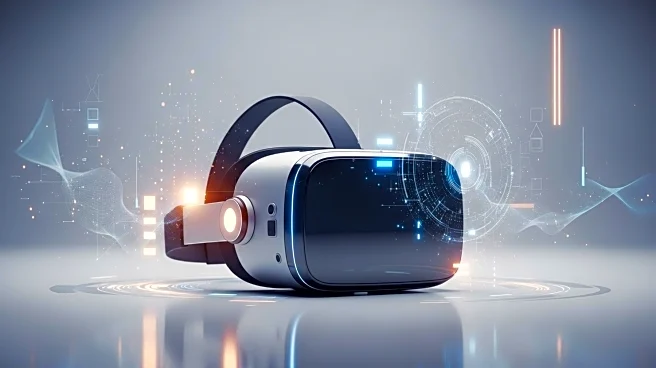What's Happening?
The marketing industry is undergoing a significant transformation as brands increasingly prioritize immersive experiences over traditional advertising methods. This shift is driven by consumer fatigue with conventional ads and a growing preference for experiences that offer emotional connections. Brands are now focusing on creating full-scale experiences at events like music festivals and sporting events, where they can engage consumers as active participants rather than passive viewers. This trend is particularly popular among Millennials and Gen Z, who expect brands to contribute to culture and provide shareable, memorable experiences. By 2030, it is anticipated that brands will embed themselves in cultural events, becoming co-creators of entertainment and lifestyle rather than mere sponsors.
Why It's Important?
This shift towards experiential marketing is significant as it reflects changing consumer behaviors and expectations. As trust in traditional advertising declines, brands that offer meaningful experiences are likely to see increased consumer loyalty and engagement. This trend also highlights the rise of the experience economy, where spending on travel, dining, and live events is growing. For brands, this means reallocating budgets from traditional ads to experiential activations, which can generate higher social engagement and earned media value. The move towards branded experiences also aligns with the desire for community-building and escapism, offering consumers a break from routine and a chance to engage with brands in a more personal and meaningful way.
What's Next?
As the trend towards experiential marketing continues, brands are expected to integrate more immersive technologies such as augmented reality (AR) and virtual reality (VR) into their activations. This will make brand experiences even more interactive and accessible to global audiences through hybrid physical-digital models. Additionally, brands will likely focus on co-producing cultural moments, blurring the lines between entertainment and marketing. The future of marketing will involve creating shared moments that consumers choose to join, with brands designing campaigns as cultural events that live beyond the initial activation.
Beyond the Headlines
The shift towards branded experiences over traditional ads has deeper implications for the marketing industry. It challenges brands to be authentic and relevant, as forced or gimmicky activations can lead to consumer backlash. The trend also emphasizes the importance of interactivity and digital integration, with experiences designed for digital amplification through social media. As consumers increasingly seek experiences that align with their identity and values, brands that successfully deliver these experiences will not only enhance consumer loyalty but also redefine the role of marketing in shaping cultural narratives.









